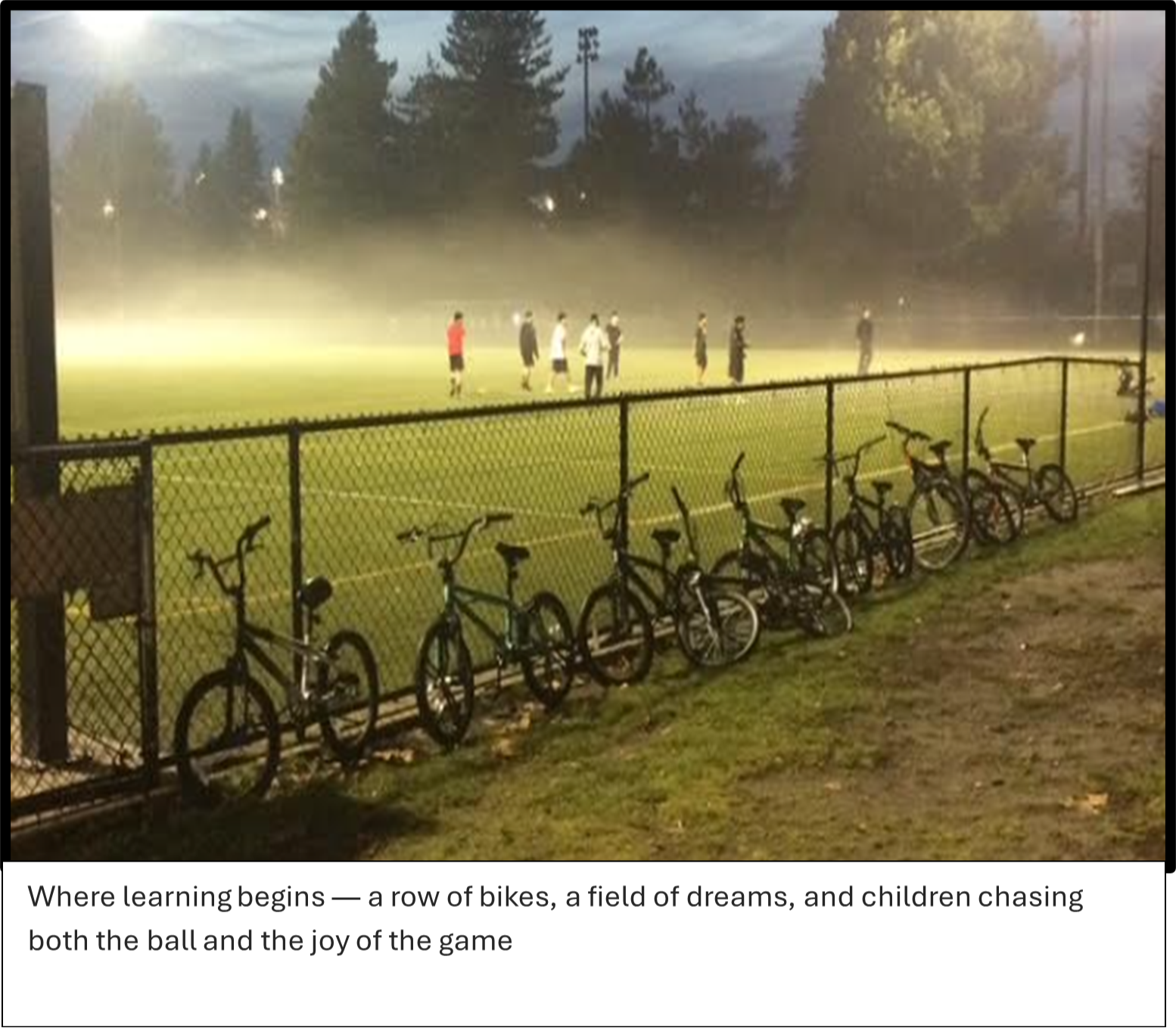The Root of the Problem: Why American Youth Soccer Is Losing Its Potential
Nov 14, 2025
The core issue in American youth soccer is not a lack of talent, athleticism, or enthusiasm.
The real problem is the absence of a true educational model.
Our youth system treats soccer development as a weekend pastime, a social gathering, or worse—a commercial product. Players are shuffled from game to game and tournament to tournament with little regard for long-term learning or progressive development.
The result?
A system that produces participants, not thinkers.
Athletes who play the game but rarely understand it.
Kids who are coached on what to do, but not how to learn.
And that is where Bloom meets Bickham.
Bloom vs. Bickham: Where Coaching Meets Cognitive Science
By Dr. Barbara Wood
When Mark Bickham first reached out to me in 2016 through social media, the message felt both familiar and unexpected. We had gone to the same high school—Decatur High School in Federal Way, Washington—just a year apart in the early 1980s. We didn’t know each other personally back then, but we shared many mutual connections. In fact, Mark’s closest lifelong friend, Mark Berry, was someone I had gone to school with since Kindergarten.
Our shared history created an instant connection. What began as a casual Facebook exchange quickly evolved into hours of deep conversation—phone calls, in-person meetings, and long discussions about teaching, coaching, learning, and the ways children grow.
During one of those early conversations, Mark laid out stacks of notes, sketches, and ideas he had collected over decades.
Among them was a rough sketch of what would become the Bickham 8-7-6-5-4-3-2-1 Framework™. But even at that early stage, he wasn’t showing me a typical coaching model.
He was telling a story. He was telling his story.
A story of a boy running through the streets of London where he learned to be scrappy, agile and fast.
A story of a 15-year-old immigrant arriving in Federal Way and discovering a game he had never played in England. In doing so he emersed himself in the study of the game. He went looking for the patterns, logic, clarity in the system. Well, he found it!
Mark faced a steep learning curve, one few players overcome. Most high-level athletes start before kindergarten. Mark started as an outsider. Yet he rose quickly, eventually playing professionally.
He closed the gap not through early training, but through the way he thinks.
Mark learns by:
- watching with unusual depth
- recognizing patterns others don’t see
- breaking down movements, decisions, and relationships
- relentless reflection
- seeing systems and interconnectedness in almost everything
This cognitive style, rooted in pattern recognition and big-picture thinking, became the foundation for the framework he would eventually build.
A story shaped by mentors like Mark Berry, Donnie Carmel, and Frank Barton—coaches who showed him that soccer wasn’t chaos.
It was structure.
It was language.
It was sequence.
It was thinking.
And that is when I realized:
Mark wasn’t describing drills. He was describing cognition systems and coaching patterns that were interconnected.
This was the moment when coaching and teaching truly intersected.
Next post:
How Mark Built the Bickham Framework
Lorem ipsum dolor sit amet, consectetur adipiscing elit. Cras sed sapien quam. Sed dapibus est id enim facilisis, at posuere turpis adipiscing. Quisque sit amet dui dui.
Stay connected with news and updates!
Join our mailing list to receive the latest news and updates from our team.
Don't worry, your information will not be shared.
We hate SPAM. We will never sell your information, for any reason.

